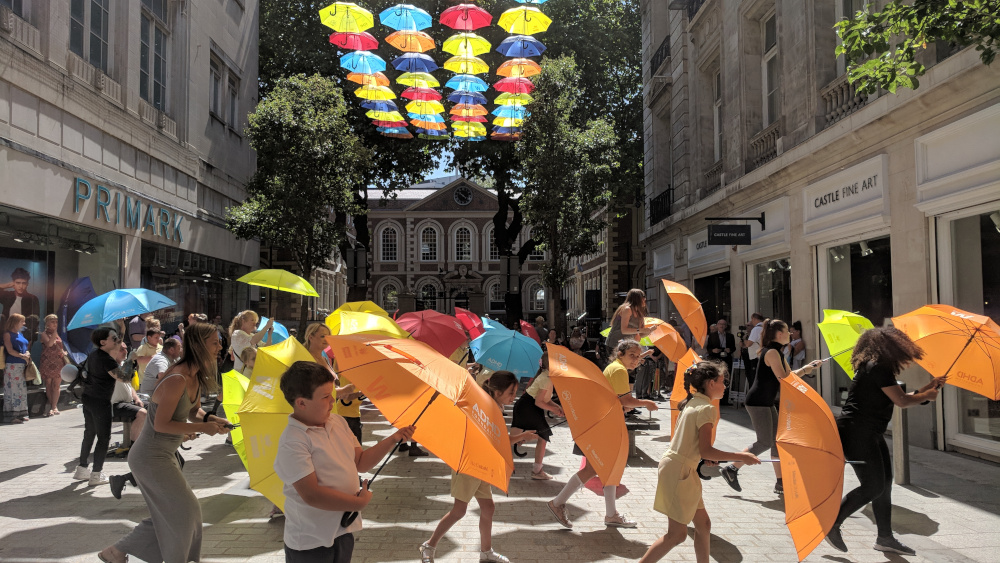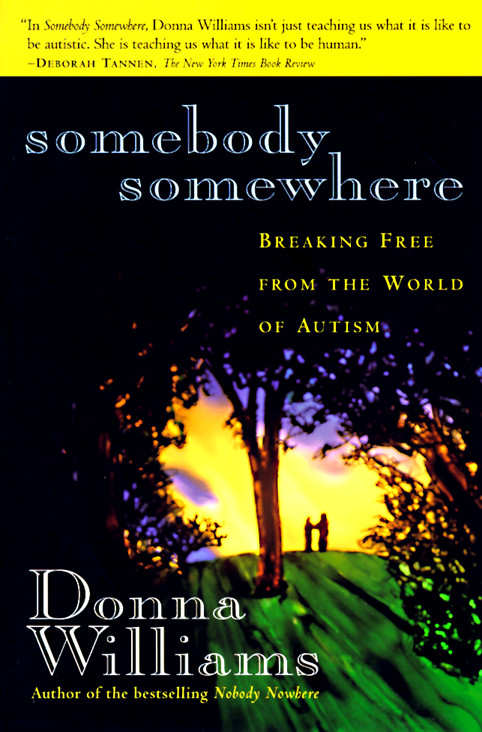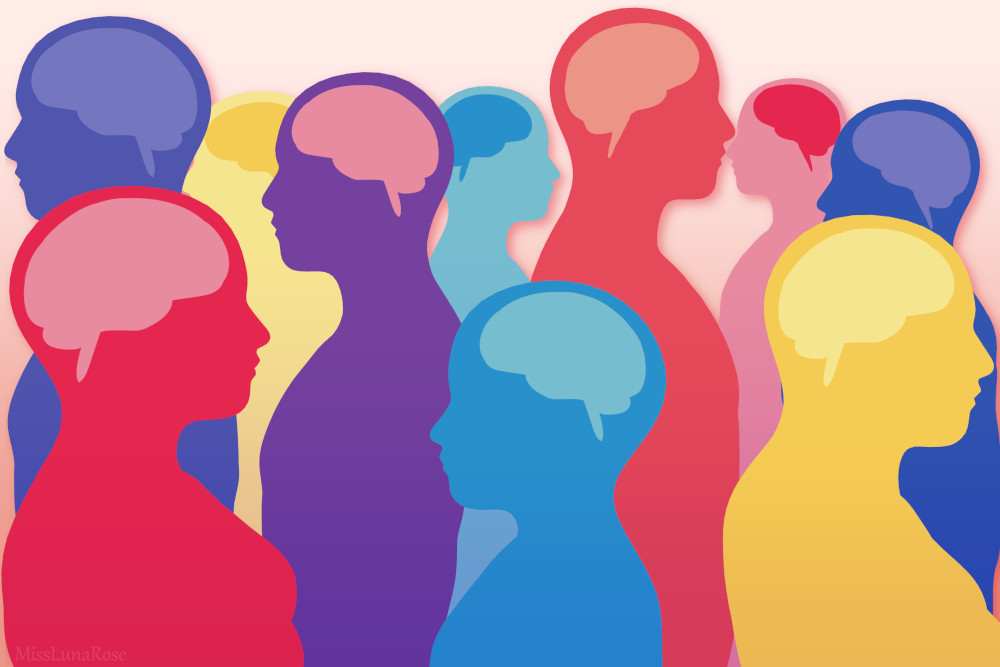
On the spectrum
Seeing people with autism as different, not deficient
People diagnosed with conditions listed in the Diagnostic and Statistical Manual of Mental Disorders (DSM) are deemed, by the manual, to have certain deficits. For a diagnosis of autism spectrum disorder, for example, this “bible” of psychiatry states that a child must show, in addition to other behavioral tendencies, “persistent deficits in each of three areas of social communication and interaction.” Such pathology-based diagnoses promote a “deficit view” of mental disorders, a narrow perspective subject to increasing challenge.
One such challenge comes from Associate Professor of Philosophy Janette Dinishak, whose introduction to autism fostered a different view. While conducting her Ph.D. research at the University of Toronto, Dinishak was invited by her adviser, philosopher Ian Hacking, to work on a project analyzing the autobiographies of autistic people. In addition to reading these works, Dinishak exchanged emails with, among others, Tito Mukhopadhyay, an Indian-born nonspeaking autistic poet, and Donna Williams, an Australian woman with autism who wrote two bestsellers, Nobody Nowhere and Somebody Somewhere. From this research, Dinishak gained insights into the experiences of autistic people that she wouldn’t have had otherwise.

Dinishak eventually took these insights to UC Santa Cruz, joining the faculty in 2011. At UCSC, she met and began a now decade-long collaboration with Professor of Developmental Psychology Nameera Akhtar. The collaboration has included others, such as Vikram Jaswal, professor of psychology at the University of Virginia in Charlottesville. Their common interest? Critiquing the deficit view of autism, assessing its impact on autism research, and unveiling its potential toll on autistic people and their families.
The researchers recently completed a qualitative study, published in PLOS ONE. “We tried to understand how some moms come to experience a sense of connection with their autistic kids. What kinds of behaviors, perspectives, and approaches in the relationship led them to feel connection with kids who traditionally—and wrongly in my view—are assumed not to be all that interested in connecting with other people,” said Jaswal. Of Dinishak, Jaswal said: the qualities she “brings to bear on challenging the deficit view of autism include her fierce intellect and her willingness to practice intellectual humility, her careful and rigorous interrogation of entrenched and novel ideas, and her genuine interest in reducing the stigma associated with autism.”
We spoke with Dinishak about her research and its implications for autistic people.
How has the deficit view shaped your work? As a philosopher, I got interested in trying to be clear on what it is to have a deficit view of some phenomenon. It's a dominant, popular, and scientific viewpoint that when you are trying to understand autistic behaviors and other features of autism, you are associating those features with some kind of absence of what so-called normal people have. Then, there’s the additional step of evaluating it negatively and saying, you lack something you should have. I find both aspects of the deficit view of autism problematic.
Has the deficit view impacted the scientific research on autism? On the one hand, there's some appreciation of the heterogeneity of autism. The DSM changed its category for autism by using the term autism spectrum disorder. But no matter where you're placed on the so-called spectrum, the common denominator is having challenges in social interaction. I'm putting it quite neutrally. Usually, it's cast as deficits in social and emotional reciprocity. So autistic people's behaviors—such as lack of eye contact, or rocking back and forth, turning, or walking away during conversation—are taken to be indicative of deficits in social and communication skills. Autistic people are being attributed deficits to explain what's going wrong in interactions with non-autistic people.
Another deficit view is the lack of empathy portrayal, saying that autistic people lack empathy. It’s sometimes related to the mind-blindness theory of autism, which says typical or normal people have a theory of mind, which allows them to predict and explain other people's behaviors. They attribute mental states like beliefs, desires, and intentions to others to figure out what other people are going to do, and to explain things that they've already done. So, if an autistic person lacks a theory of mind or has a deficit of it, then the idea is that they're not able to use those same kinds of behavioral cues, as a way of making inferences about mental states of other people, but also themselves.

Why is the deficit view a cause for concern? Think about this phrase that one encounters in the DSM: deficits in social and emotional reciprocity. Well, what is reciprocity? That's something that occurs between people. So, there's something conceptually strange about thinking about that lack of reciprocity as a problem with a particular person and saying, ‘Oh, there's something wrong with the autistic person,’ but not paying attention to how non-autistic people are contributing to the difficulty in the reciprocal interaction.
Tell us about your study with mothers and autistic children. It was an in-depth interview study of just 13 mothers of nonspeaking autistic children. I don't want to say anything that would be interpreted as a generalization for all mothers of nonspeaking autistic children, let alone fathers or other caregivers. But these mothers have developed a perspective or a way of regarding their child and their relationship with their child that allows them to be open to moments of connection to their children and interpreting their children's behavior in ways that help them feel connected.
Can you give an example? Just by being exposed to an alternative to the deficit point of view, such as the neurodiversity perspective on autism, and then bringing that alternative perspective to atypical interactions, like just sitting next to their child, not making eye contact, or talking to each other, just being in physical contact, shoulder to shoulder, and appreciating how that itself could be a moment of connection.
Sometimes the typical interactions do happen. Then, the parents appreciate those, even if they are rarer than if the child wasn't autistic. But they were open to recognizing and appreciating atypical forms of social behavior as social. That fueled their feeling of connection with their child because they could interpret those behaviors as bids for social connection. It's extremely powerful just to appreciate the enormous amount of reflection, self-understanding, and the humility of their journey in trying to understand their children.
Did anyone talk about how the deficit view had an impact on them? There was one mother who had felt connected to her child prior to diagnosis and had a really strong bond with her child. And then later on, her child got a diagnosis, and that diagnosis changed retrospectively how she viewed her experience with her child in a negative way. It made her look back and say, ‘Well, I guess, all those times that I thought we were connected, we weren't, because you have autism and because autism means that you can't connect.’ The diagnosis was a deeply negative experience for her. It was like losing meaning in how she understood her relationship with her child prior to diagnosis, because of the deficit view. Finding a way back to reinterpreting her past experience with her child in a positive light was an important part of her journey.
Did the mothers have any advice for parents whose children just got diagnosed with autism? The advice that they gave is, first of all, to recognize that if you've met one autistic person, you've met one autistic person. You must get to know your child in their particularity. Another recommendation was to get connected to advocacy communities that are friendly to alternatives to the deficit-view pathology paradigms, like those that promote neurodiversity. These communities believe that autism, like some other human differences, is a positive variation in some of its manifestations. If you take that perspective, then you are open to strengths or neutral differences that your autistic child may have, not just focused on challenges.

